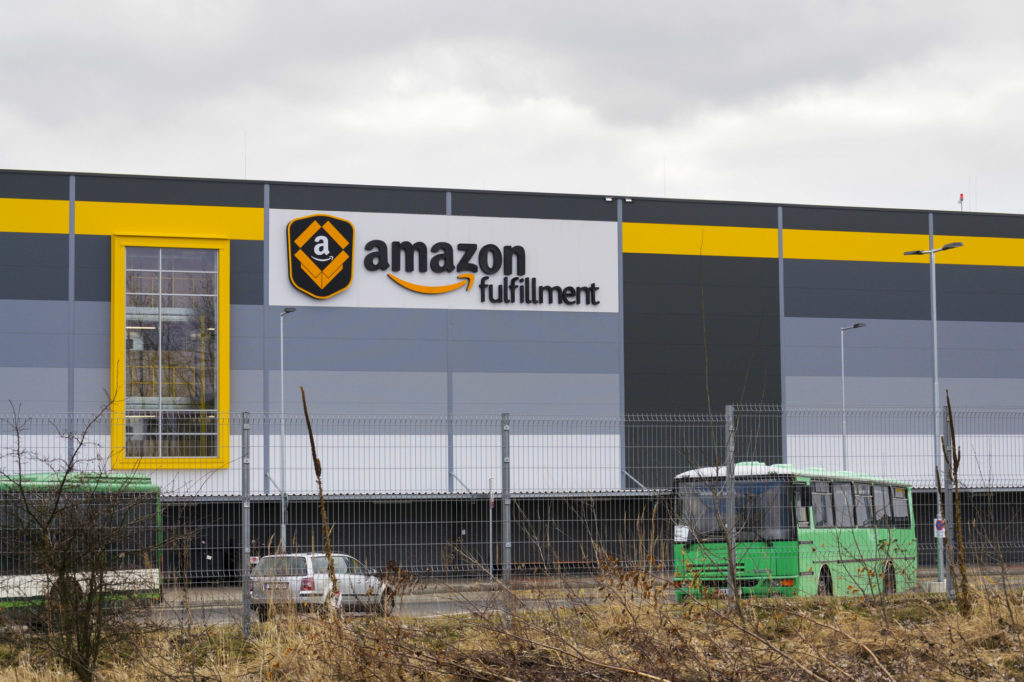Amazon has fired its latest shot in the battle for the last mile: in-car delivery. What’s Amazon doing differently to other companies delivering to the trunk of the car? And are there any potential downsides?
The battle for the last mile is well and truly underway and all carriers are seeking to maximize the customer experience by giving more flexibility and making more successful first-time deliveries.
As part of this push, in-car delivery is now available to Amazon Prime members in 37 US cities, including same-day, two-day and standard shipping. Amazon isn’t the first company to offer in-car delivery, but the big news is that this delivery option will be integrated into the Amazon ecosystem.
How it works
Customers download the Amazon Key app (which to this point has been for in-home delivery only) and then link their Amazon account with their connected car service account. It’s available to owners of late-model General Motors and Volvo cars.
On the day of delivery, customers park within range of the agreed address and a driver will deliver the package during the scheduled time window. It’s not a dynamic delivery option where the driver finds your car wherever it’s parked. Customers receive notifications when the car is unlocked, then relocked after delivery.
Who is already delivering to the car?
PostNord and DHL already offer in-car delivery. Volvo customers in Sweden, Norway and Switzerland can already accept in-car consignments. Jaguar, Volkswagen and Audi are some of the other manufacturers opening their boots to delivery companies.
Why it’s a good idea
In-car delivery should reduce ‘porch piracy’ by acting as a mobile parcel locker. It also virtually guarantees first-time delivery and gives another delivery option for the consignee. By being under the Amazon banner, it’s another frictionless Amazon transaction.
Are there downsides?
Probably the most important downside versus other ‘out of home’ delivery options is that unlike parcel lockers or pick-up and drop-off points (PUDOs), the carrier has no delivery scale economies.
Typically, a PUDO delivery will be some 3-7 parcels (and more in peak, or busy locations); lockers will be several times this figure. Accordingly, the carrier has significant last-mile delivery savings by paying for delivery to one point, which is known and open for business, rather than several single deliveries.
Another downside is that the car must be in the delivery range, which is likely to only help people who will be in close proximity to their home or office. Amazon says that it doesn’t track customers’ vehicles, and that only necessary information is given to delivery drivers so they can find customers’ cars.
There is still a risk of theft from or damage to the customer’s vehicle. Deliveries will be covered by Amazon’s Happiness Guarantee. If any Amazon Key delivery isn’t completed to the customer’s satisfaction, or the product or customer’s property was damaged as a direct result of the delivery, Amazon will work to correct the problem.
There could be a security concern (probably groundless) among some consignees that if someone gets access to the coding technology they could send a bomb to the car boot… That said that, this is even more likely with parcel lockers.
What’s next?
When Amazon launched Amazon Key, part of the pitch was that customers could grant access to their home to a range of service providers – not just the Amazon delivery driver. Could the same apply for car access under Amazon Key?
General Motors says that there are seven million of its cars in the USA that can be used for Amazon in-car delivery. How long would it take Amazon to build a seven-million strong parcel locker network? And how many millions would it cost?
While we can’t yet say for sure that this will be a game changer, this is another initiative whereby Amazon is pushing conventional carriers to be more flexible and forward-thinking.
Bio:
To contact the authors about the latest hot topics affecting the last mile delivery market, visit their LinkedIn pages:
Ian Kerr is the founder and host of the Postal Hub Podcast, the weekly podcast for the postal and delivery sectors.
Marek Różycki is managing partner at Last Mile Experts, specializing in CEP and e-commerce last-mile advisory.


